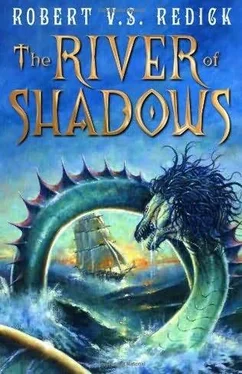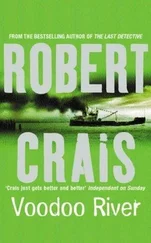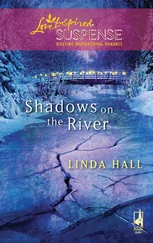Robert Redick - The River of Shadows
Здесь есть возможность читать онлайн «Robert Redick - The River of Shadows» весь текст электронной книги совершенно бесплатно (целиком полную версию без сокращений). В некоторых случаях можно слушать аудио, скачать через торрент в формате fb2 и присутствует краткое содержание. Жанр: Фэнтези, на английском языке. Описание произведения, (предисловие) а так же отзывы посетителей доступны на портале библиотеки ЛибКат.
- Название:The River of Shadows
- Автор:
- Жанр:
- Год:неизвестен
- ISBN:нет данных
- Рейтинг книги:4 / 5. Голосов: 1
-
Избранное:Добавить в избранное
- Отзывы:
-
Ваша оценка:
- 80
- 1
- 2
- 3
- 4
- 5
The River of Shadows: краткое содержание, описание и аннотация
Предлагаем к чтению аннотацию, описание, краткое содержание или предисловие (зависит от того, что написал сам автор книги «The River of Shadows»). Если вы не нашли необходимую информацию о книге — напишите в комментариях, мы постараемся отыскать её.
The River of Shadows — читать онлайн бесплатно полную книгу (весь текст) целиком
Ниже представлен текст книги, разбитый по страницам. Система сохранения места последней прочитанной страницы, позволяет с удобством читать онлайн бесплатно книгу «The River of Shadows», без необходимости каждый раз заново искать на чём Вы остановились. Поставьте закладку, и сможете в любой момент перейти на страницу, на которой закончили чтение.
Интервал:
Закладка:
“Rin forgive me,” muttered Fiffengurt. He was blind: oil in his good eye, oil on the hand that tried to wipe it away.
“Don’t worry,” she told him, “there’s nothing to forgive.”
Beyond the fire, a dark mass trod water. The dlomu had known what was coming: they had dropped from the ship and the trailing lines, dived underwater, surfaced well behind the blaze.
3. Technically true. The Book of the Old Faith contains certain apocryphal material, including the Address of the Vengeful Seraph, who states: “To defeat the foes of Eternal Truth, lesser truths may be sacrificed, and deception wielded like a knife in the dark.” The materials appear in no copies of the Book before its third century of existence, however, and it appears likely that they were added by a war-like king, precisely to justify the training of a guild of holy assassins. Like the pruning of young oaks, editorship is power over a future one will never see. -EDITOR.
THE EDITOR RECOMMENDS OTHER READING TO THE FAINT OF HEART
To my thus-far-loyal readers: Happiness is not nothing. One should embrace it. The world groans under the weight of serious minds bent miserably over their books, over their smithy’s bench, their ledger or their laundry or their weevil-withered crops. Happiness may vanish in an eyeblink, never to return. Why should anyone spend the length of a tea-sip on a story that does not guarantee-absolutely guarantee-the emotion’s increase?
My purpose here is simply a warning. If you are part of that infinitesimally small (and ever smaller) band of dissidents with the wealth, time and inclination to set your hands on the printed word, I suggest you consider the arguments against the current volume. To wit: the tale is morbid, the persons depicted are clumsy when they are not evil, the world is inconvenient to visit and quite changed from what is here described, the plot at this early juncture is already complex beyond all reason, the moral cannot be stated, and the editor is intrusive.4
The story most obviously imperils the young. But certain others should weigh the benefits of persevering; these include the old, who after all will perish soon enough; the able-bodied, whose vigor may decline if they make a habit of reading at length; the unmarried, who had best cultivate more sociable pastimes; the married, who find the freedom to read only by neglecting commitments; those whose religious views are policed by employer, priest, king, grandmother or guilt internal; the nearsighted; the nervous; the gleefully patriotic.
But the first criticism-the sheer gray gloom of the tale-is the most damning. To that end, and conscious of my duties as a curator of this splendid archive, I have assembled a list of some seven hundred titles surpassing The Chathrand Voyage in both brevity and good cheer. Among them:
• Bissep, Mother K., The Good Millipede of Wilber Meadow
• Tennyson, Virzel, Kh’iguar Mutis (“Great Scaly Things Defeated,” bilingual edition)
• Lace, Helium, And Then They Were Married
• Slabbe, Lord Cuprius, What I Eat
• Ungrok, Egar, Battle for Battle’s Sake: An Adventure for Boys
The complete list is available upon request. It is quite startling how much one has to choose from. I merely implore you to recall that life is fleeting, and that choices must be made.
4. Do not misunderstand me: The Chathrand Voyage has merits aplenty. Why else would I dedicate this last effort of my life to its telling? Why else would the lord of this domain have granted me five (young, ambitious, “promising,” petty, cynical, rude) editorial assistants, and a meal allowance? Never mind that Holub’s Curse of the Violet King is better known. I know Mr. Holub. I wish him well and feel no envy, and incidentally he suffers miserably from ringworm.
Carried Away
22 Ilbrin 941
Night fell. The pool of fire dwindled behind them. Without chart or knowledge of the gulf they fled, east by southeast, pulling gradually away from the Sandwall. Ibjen wept; he had tried a second time to throw himself overboard, and had been seized again by the Turachs. Even when eight miles separated them from the northern shore he begged to be allowed to swim.
“Not on your life,” said Fiffengurt. “Besides, you told us you have family in the city.”
“I do,” said Ibjen. “But my father, those soldiers-”
“Would only grab you too, lad. You can’t help your father that way.”
“But I thought you were avoiding Masalym! Oh, where are you taking me? Why did I come aboard?”
Where indeed? Geography, at least, should not have changed in two centuries. Ibjen was too upset to be consulted, but Mr. Bolutu recalled from his schooldays that the city lay due south from Cape Lasung. “A wonder, they say: Masalym, the city above the falls. I should dearly love to see it.”
“You were the one who warned us not to pay ’em a visit,” snapped Fiffengurt. “Sorry to disappoint you, but we’re taking your first piece of advice. We need food, and a calm harbor for repairs. But most of all we need to stay away from bastards like the ones we just escaped.”
An hour later he turned the Chathrand hard to the southwest, a tack calculated to bring them in sight of land at least thirty miles west of the city. “We’ll put you ashore wherever it’s safe, Master Ibjen,” he assured the boy at last, “with a purse of gold for services rendered, and hardships endured.”
“Enough to buy a horse?”
“Enough for a blary brood stallion. Now go and eat, before Teggatz licks out the pots.”
It was a chilly night; the old moon absent, the strange little sapphire moon winking low and pale in the south. Far to the east, flashes of light could be seen, and low, deep rumblings followed, like the growls of giant dogs. Traces of a storm, the men told themselves. But Pazel recalled the armada that had sailed that way, and was not sure.
They shortened sail: even in these calm waters it would not do to come suddenly upon a lee shore, or a reef. At first light they would take in their surroundings, Fiffengurt declared: perhaps they would find another village, well away from the city, a humble settlement blessed with cove and croplands, where no army of marauders lay in wait.
Neither Pazel nor Thasha wanted to eat. They helped out in the surgery, cleaning and binding wounds, cutting cloth into bandages, rinsing blood from the floor with buckets of salt water and doing anything else Rain or Fulbreech asked. Hercol and Bolutu joined in as well: the swordsman knew a great deal of field medicine, and Bolutu was, after all, a veterinary surgeon. All the same, it was like a battle after the battle: they ran, cursed, held the bleeding men down, stabbed sutures into their wounds. If only Dr. Chadfallow-! They did not have to say it. He would have made it all look easy. He would have made them into a platoon.
Hours into the work, Pazel looked up from the pan of knives he was washing to see Fulbreech leaning exhausted over a surgical table, trembling; and Thasha supporting him, an arm over his shoulders, her chin against his cheek. Hercol noticed them too, and his eyes narrowed to slits. When he glanced at Pazel it seemed almost a warning.
Later, Pazel, Thasha and Hercol visited the forecastle house. Both moons were risen now, and their conjoined light spilled through the window, illuminating huddled sleepers, stacked dishes, Ott’s watchful eyes. Pazel’s hatred struggled in the chains of his fatigue. Did the man never sleep?
Chadfallow slept near the window, snoring through the nose Pazel had broken on Bramian. Lady Oggosk crouched by the smudge-pot, burning scraps of paper. And there in a corner lay Neeps and Marila, curled up like puppies, dead to the world. Someone might have nudged them awake, for Neeps had wanted to talk no matter the hour. But it wasn’t going to happen: Ott was already approaching, stepping over Chadfallow, demanding information. There was no defying him, not with Neeps and Marila there to punish as he liked. The damage? he asked Hercol. The course heading, the winds? And what about the Shaggat’s arm?
Читать дальшеИнтервал:
Закладка:
Похожие книги на «The River of Shadows»
Представляем Вашему вниманию похожие книги на «The River of Shadows» списком для выбора. Мы отобрали схожую по названию и смыслу литературу в надежде предоставить читателям больше вариантов отыскать новые, интересные, ещё непрочитанные произведения.
Обсуждение, отзывы о книге «The River of Shadows» и просто собственные мнения читателей. Оставьте ваши комментарии, напишите, что Вы думаете о произведении, его смысле или главных героях. Укажите что конкретно понравилось, а что нет, и почему Вы так считаете.












